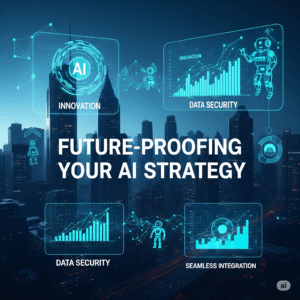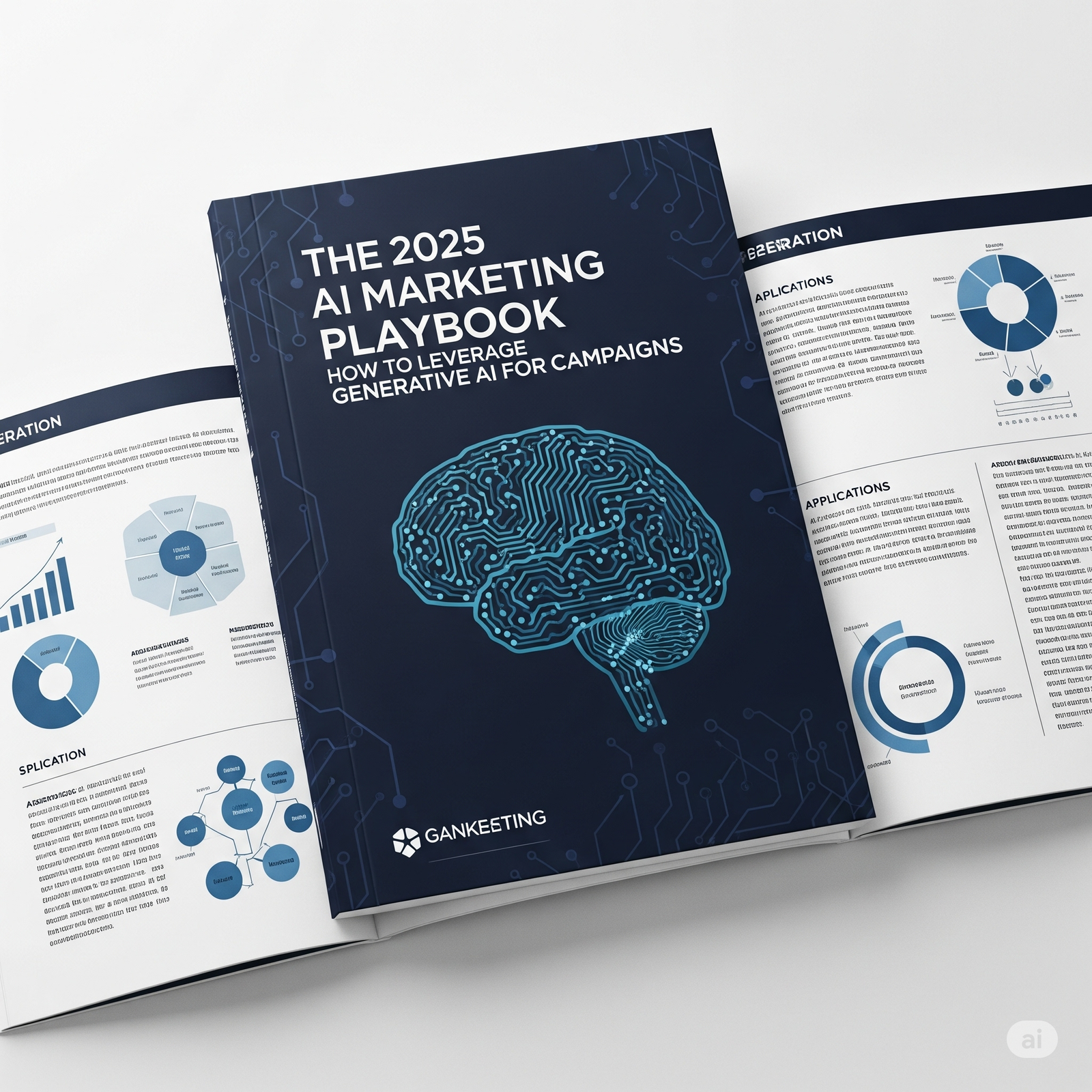Introduction: AI is No Longer Optional—It’s Essential
In 2025, 90% of digital interactions are AI-driven, and brands that ignore generative AI risk falling behind competitors who use it to automate, personalize, and optimize campaigns at scale 1. Generative AI has evolved from a novelty to a core marketing asset, enabling everything from hyper-personalized ads to AI-generated video scripts and predictive customer journeys.
This playbook will guide you through:
The top AI marketing trends shaping 2025
Practical strategies to integrate generative AI into campaigns
Ethical considerations and risk management
Case studies of brands winning with AI
Tools and frameworks to future-proof your strategy
Let’s dive in.
1. The State of AI Marketing in 2025
AI Dominates Content Creation
Generative AI tools like ChatGPT-4.0, MidJourney, and Runway are now indispensable for marketers. Key stats:
75% of businesses use AI for content creation, reducing costs by 60%.
AI-generated social posts cost $12 vs. $50 for human writers, but require $20K/year in compliance tools to ensure quality.
Hyper-Personalization is the Standard
Consumers expect tailored experiences:
71% demand personalized interactions, driving 40% higher revenue for brands that deliver.
AI analyzes real-time data (browsing history, purchase patterns) to predict customer needs before they arise.
Answer Engine Optimization (AEO) Replaces Traditional SEO
With 80% of Google queries triggering AI Overviews, marketers must optimize for AI-generated answers using Structured data (FAQ schemas, Q&A formats), Conversational long-form content (2,000+ words) & Semantic keyword clustering.
-
How to Integrate Generative AI into Your Campaigns
Step 1: Start with Low-Stakes Content
- Use AI for brainstorming, drafts, and A/B testing ad variations.
Example: Meta tested 15M AI-generated ads, finding human-refined AI content performed 2x better.
Tools: Jasper (copywriting), Pictory (video scripts), Surfer SEO (optimization).
Step 2: Automate Personalization at Scale
Dynamic email campaigns: Tools like Klaviyo use AI to tailor subject lines and product recommendations.
AI-powered chatbots: L’Oréal’s SkinConsult AI drove 3x higher conversions by diagnosing skin concerns via selfies 5.
Step 3: Leverage AI for Visual and Video Content
Short-form video: Platforms like TikTok and Instagram Reels prioritize AI-generated clips. Example: Synthesia creates videos with AI avatars in 140 languages for global campaigns.
AI design tools: Canva AI auto-generates branded graphics, saving 70% of design time.
Step 4: Optimize for AI Search and Voice
Google’s AI Overviews favor authoritative, conversational content.
Tactics: Use long-tail keywords (e.g., “best running shoes for flat feet 2025”).
Embed video summaries to rank in multimodal results.
-
Ethical AI: Balancing Innovation and Trust
Transparency is Non-Negotiable
73% of consumers distrust AI-generated content unless brands disclose its use.
- Best practices:
Label AI content (e.g., “Created with AI assistance”).
Audit tools for bias (e.g., IBM Watson’s fairness checks).
Compliance with Global Regulations
- EU’s AI Act (2024)and S. Algorithmic Accountability Act (2025) require:
Bias testing (e.g., gender/racial fairness in ad targeting).
Data privacy (first-party data strategies).
-
Case Studies: Brands Winning with AI in 2025
Case 1: Heinz’s AI-Generated Ketchup Campaign
Strategy: Used DALL-E 2 to create viral images like “Renaissance Ketchup Bottle.”
Results: 850M+ impressions, 38% higher engagement.
Case 2: Netflix’s AI Personalization Engine
Strategy: AI recommends content based on viewing history + thumbnail A/B tests.
Results: 80% of watched content is AI-suggested, reducing churn.
Case 3: Unilever’s AI Content Hub
Strategy: IBM Watson-powered “U-Studio” analyzed past campaigns to optimize creatives.
Results: 30% lower production costs, 50% faster turnarounds.
-
The 2025 AI Marketing Toolkit
| Tool | Use Case | Why It’s Essential |
| ChatGPT-4.0 | Copywriting, brainstorming | Multimodal (text + image analysis) |
| MidJourney | AI-generated ad visuals | Creates brand-aligned graphics in seconds |
| Surfer SEO | AI-optimized content | Combines Semrush data + LLMs for rankings |
| ModiFace | AR try-ons (e.g., L’Oréal) | Boosts e-commerce conversions by 3x |
| Albert.ai | Programmatic ad buying | Automates bids for 40% higher CTR |
-
Future-Proofing Your AI Strategy

Trend 1: AI Co-Marketing Partnerships
Brands like Nike and AKQA collaborate with AI platforms to create virtual experiences (e.g., AI-generated Serena William’s tennis match).
Trend 2: AI + Web3 Integration
Platforms like CEEK VR let brands turn AI content into NFTs, virtual events, and token-gated experiences.
Trend 3: Self-Learning AI Models
Tools like DeepSeek-R1 auto-update based on user feedback, reducing manual tuning.
Conclusion: Your AI Marketing Action Plan
Audit your tech stack: Adopt AI-powered tools for content, ads, and analytics.
Train your team: Upskill marketers on prompt engineering and AI ethics.
Test and iterate: Run AI-human hybrid campaigns (e.g., AI drafts + human edits).
Measure ROI: Track cost savings, engagement lifts, and conversion boosts.
AI won’t replace marketers—but marketers using AI will replace those who don’t.
Ready to transform your campaigns? Book a free AI strategy session with Octa Affair today.

